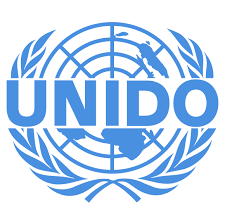Responding to the spread of radicalisation in the Western Balkans, Women without Borders (WwB) as part of its international ‘MotherSchools 2020’ project implemented MotherSchools in Montenegro, Kosovo, Macedonia, and Bangladesh. The Montenegro roll-out welcomed mothers to the global MotherSchools community and advanced their self-confidence and competence levels as the basis and first step on the road to becoming role model security allies in their homes and communities. WwB’s growing Parenting for Peace movement builds resilience in homes and communities that are vulnerable to violent extremism and heightens global awareness of mothers as changemakers and agents of prevention.
In the Western Balkans, messages of religious militancy have resonated profoundly with vulnerable youth populations and gained considerable traction in isolated communities over the past decade. Areas with high concentrations of Albanian-speaking adolescents and young adults have been particularly susceptible to past recruitment efforts by ISIS. Violent extremist groups have taken advantage of voids in and pressures on identities that have been and continue to be shaped by struggles with the lingering legacies of violent conflict and a history of shifting geopolitical circumstance. Since recruiters have immersed themselves in and paid particular attention the region’s complex social-political makeup to effectively target and radicalise vulnerable youth, its countries boast some of Europe’s highest per capita rate of individuals who left to fight in Iraq and Syria. The recent wave of returnees threatens to introduce new toxic ideologies, exacerbate the issue in already affected areas, and bring violent extremism into other communities across the region.
Despite Montenegro’s comparatively low number of foreign fighters, governments and stakeholders are increasingly concerned about the potential rise of violent extremism and prospective spill-over effect from neighbouring countries. Advancing Montenegro’s prevention strategy has become a key focus in light of region-specific developments and heightened security concerns regarding ISIS-inspired acts of violent extremism.
MotherSchools Tuzi, Nikšić, & Podgorica | 2018-2021
Through its ‘MotherSchools 2020’ project, supported by the U.S. Department of State, Women without Borders (WwB) brought its global Parenting for Peace programme to Montenegro in cooperation with its local implementing partner Forum MNE to convene three groups in Tuzi, Nikšić, and Podgorica. This project also included WwB MotherSchools roll-outs in Kosovo, North Macedonia, and Bangladesh.
Ahead of convening the MotherSchools groups, WwB trained a pool of local professionals as MotherSchools Teachers and Notetakers who went on to deliver the Curriculum to three groups of mothers who had joined to develop their parenting and safeguarding skills. Despite numerous challenges and setbacks brought about by the global pandemic, three MotherSchools groups succeeded in graduating from the programme. On average, the mothers as Participants each received at least forty hours of training geared towards becoming role models and prevention stakeholders in their families and communities.
The MotherSchools Curriculum, which employed developmental psychology, self-confidence training, and theoretical sessions, guided the mothers in developing their competence and confidence at the individual, family, and community levels. Evidence of this progress was supported by findings from a qualitative data analysis of semi-structured Entry and Exit Interviews conducted before and after the programme. Montenegro is now one of sixteen countries to have joined WwB’s global effort to equip mothers with the knowledge and skills to become central violence prevention allies in at-risk communities around the world. As part of the programme’s public outreach component following the MotherSchools graduation in Montenegro, WwB additionally developed a speakers’ campaign to disseminate key messages and contributions. This resulted in a series of social media posts over two weeks, highlighting the successes of the programme and the impact it has had on the communities of implementation.
With a view to the future, WwB considered the monitoring data and compiled the graduates’ feedback to gauge how future engagement could build on the momentum of Montenegro’s first MotherSchools iteration. The three main recommendations comprised: implementing follow-up activities; deepening and expanding engagement through new rounds of MotherSchools in current and new communities; and incorporating fathers into the fold by bringing WwB’s FatherSchools model to Montenegro.

